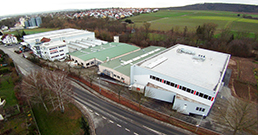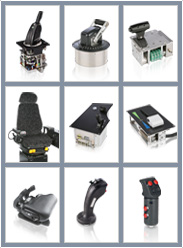News & Events
Why I Spent a Month’s Rent on One Night
- December 13, 2015
- Posted by: admin
- Category: Journeys

I was first introduced to The Nam Hai by Jeremy Clarkson, who, during a special 2009 episode of Top Gear, found refuge from heavy humidity alongside the luxury hotel’s three architecturally-enticing infinity pools and two-mile-long private white sand beach. Nestled amongst oversized coconut trees 15 minutes from Vietnam’s ancient city, Hoi An, Clarkson is seen sipping a Nam Hai Sling, a signature gin and pineapple cocktail. “If you’re passing, it’s worth dropping in. Actually, even if you’re not passing, it’s worth flying over there just so you are,” he says emphatically through the TV.
Five years later I found myself in Ho Chi Minh with my boyfriend, where, after a week’s worth of eating street food on a shoestring budget, we decided to venture north toward Laos. In need of a halfway-point pitstop, I could hear Clarkson’s sarcastically charming British accent egging me on. So I typed The Nam Hai, where rooms range from $700 to $3,000 per night and spa “rituals” cost, on average, $400, into Google “just to look.”
First let me be clear about my compulsion for budgeting. I am fond of coupons; I shop diligently, waiting for sales and “better” deals. I’m the kind of person who spends too long agonizing over what New York Metrocard to buy (unlimited or pay-per-ride), conscious of wasting unused rides, which never works out in my favor. When traveling around the U.S., my boyfriend and I are accustomed to camping and economical Airbnbs—neither of us had ever stayed at a five-star hotel before, nor had we ever experienced a real spa. (Massages in Chinatown don’t really count.) But when visiting faraway, exotic places, my approach to money seems to shift. Any idea of financial solvency is quickly replaced with a sort of “yolo” logic, where the argument, “We’ll probably never come back here, so we may as well ‘do it properly,’” often prevails.
At the train station in Ho Chi Minh we started scrolling through The Nam Hai’s perfectly-lit and expertly styled gallery images. “It looks nice, but is this really worth the money?” my boyfriend asked. Though I couldn’t say for sure, I did find some scientific reasoning to justify the splurge. Earlier this year, a study titled A Wonderful Life: Experiential Consumption and the Pursuit of Happiness, published in the Journal of Consumer Psychology, proved that experiences (things like travel, outdoor activities, visiting exhibitions, or eating at fancy restaurants) bring people the most lasting happiness. Material things, like the new TV we wanted to buy instead, do not. So in the name of “enduring satisfaction,” as Dr. Thomas Gilovich, a psychology professor at Cornell University who conducted the study, put it, we thought what the hell and booked a one-bedroom oceanfront villa at The Nam Hai, with a bathroom and outdoor shower garden twice the size of our Greenpoint, Brooklyn apartment.

Located on the pristine Ha My beach on Vietnam’s central coast and set in 87 acres of expansive, sculpted grounds, The Nam Hai is considered one of the world’s leading small hotels. (It currently has more than 1,200 “excellent” reviews on TripAdvisor.) There are 60 self-contained small villas, all featuring a raised four-poster bed facing the South China Sea, as well as 40 larger villas with up to five bedrooms, a private pool, and quarters for a butler. Since the hotel first opened in 2006, it has received a handful of awards, includingTravel + Leisure’s World’s Best Designed Resort in 2008, and accolades from Conde Nast Traveler, Frommer’s Review and Australian Gourmet Traveler. This year it was crowned the World’s Best Spa Hotel by Mr and Mrs Smith.
Exhilarated, we arrived at the hotel in a private black car that had picked us up from the station, feeling like two troublesome kids that were—despite our adult age—impersonating rarefied grown-ups in a world totally foreign to us. The porter showed us to our villa in a sleek golf buggy, down winding paths flanked by towering tropical plants. Our composure dissolved the instant he closed the door; which I imagine is how Kevin in Home Alone 2 must have felt after checking into The Plaza Hotel. We immediately investigated the villa’s hidden gadgets (there are many), and marveled at the indulgent bathroom products, like bottles of fresh rose petals for the lacquered eggshell bath.








